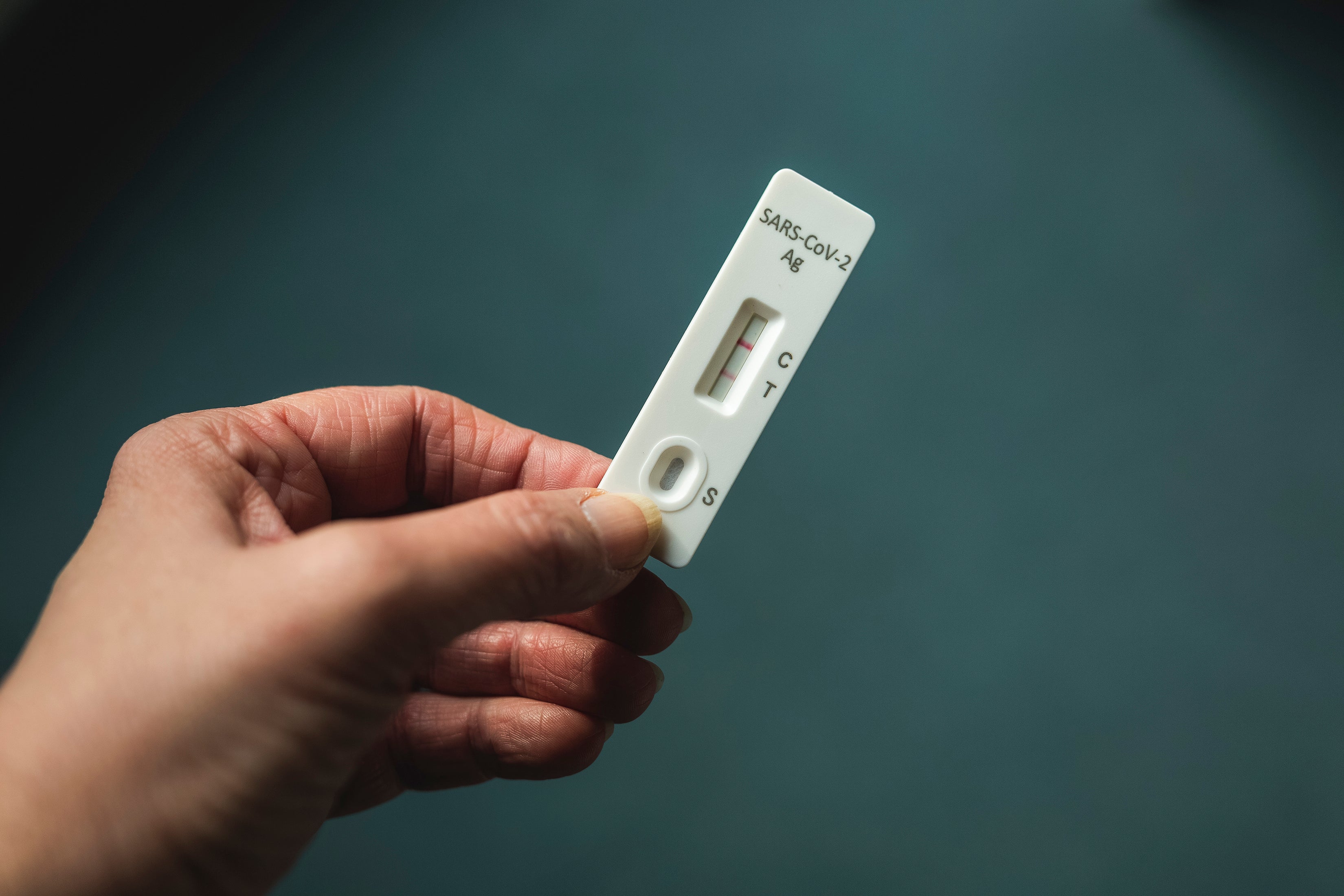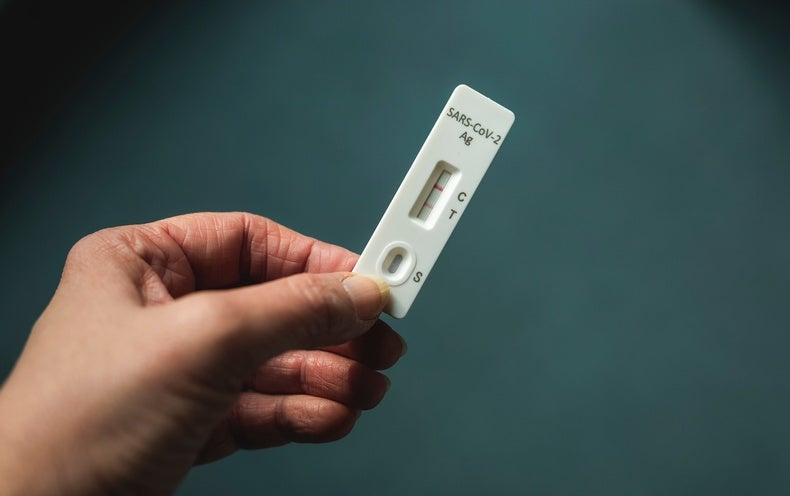
For as long as there have been vaccines, there has been vaccine misinformation—and surprisingly often it has focused on fertility. The COVID vaccines have been no exception. False claims that vaccination provokes the immune system to attack the placenta circulated even before the vaccines were available. No sooner had data been presented to disprove these claims than others sprang up. Despite extensive evidence that COVID vaccination does not harm fertility, these unfounded rumors were a major source of vaccine hesitancy among young women.
When people began reporting menstrual changes after COVID vaccination in early 2021, it would have been easy to dismiss these claims as more misinformation about vaccines and fertility. But as an immunologist who studies the menstrual cycle, I thought further investigation was warranted. There is a difference between thousands of people reporting something from their own experience and an isolated bit of misinformation that has been widely shared. And the claims about menstrual changes were plausible. There were precedents: reports that vaccination is associated with changes to menstrual periods can be found in the medical literature as far back as 1913, and there is even a report from 1549 that inoculation against smallpox could bring on unexpected vaginal bleeding.
Scientists have offered potential mechanisms to explain how immune stimulation could alter menstrual timing or flow. But menstrual cycles vary naturally, so how could we be sure that people weren’t attributing changes that would have occurred anyway to vaccination?
It was important to find out.
Clinical trials offer the ideal setting for measuring the background level of common events, such as menstrual changes, because they include an untreated control group. In the COVID vaccine trials, the rate of events in the vaccine group can be compared to that in the control group, and the difference provides an idea of how commonly these events occur as a result of vaccination. But menstruating participants in the COVID vaccine trials were not asked questions about their periods, so the opportunity to collect this information was lost. I and other scientists found ourselves playing catch-up, trying to collect reliable data by listening to people’s experiences and letting them inform our research.
This research was surprisingly controversial. On one hand, some scientists and doctors thought it wasn’t worth listening to personal anecdotes; surely, they felt, it was obvious people were attributing natural variation in their menstrual cycles to COVID vaccination. At the same time, some of those who reported changes to their periods also thought it wasn’t worth doing the research: wasn’t it enough that they were telling me they had noticed a change?
The tension between these opposing views galvanized me. I knew we could take these reports seriously enough to investigate them, while recognizing that a formal approach was needed to account for the very human tendency to ascribe cause and effect, sometimes when there is none.
Designing approaches to distinguish between menstrual changes caused by vaccination and those that would have occurred anyway was a challenge, but by analyzing existing data sets, we have been able to make rapid progress. The results are clear: COVID vaccination can cause changes to periods, but these are small compared with natural variation and resolve quickly.
The clearest findings come from menstrual cycle tracking apps. By collecting data in real time, these apps reduce inaccuracy caused by participants misremembering their experiences later, or by those who noticed a change to their cycle being more motivated to report it and thus inflating any effect. Three studies using app data find that a single dose of vaccine during a menstrual cycle delays the following period by approximately half a day, whereas two doses within the same cycle delays the next period by approximately three days. Importantly, even when two doses are given within a single cycle, the timing of periods returns to normal within two cycles. A separate study found that approximately 4 percent of people experience a heavier-than-normal period as a result of vaccination, but again, this returns to normal the next cycle.
So COVID vaccination can cause temporary changes to menstrual cycles. But how? People are equally likely to report changes with all types of COVID vaccine, suggesting that the effect is a result of the immune response rather than any particular vaccine formulation. Immune molecules called cytokines are released shortly after vaccination and may temporarily affect menstrual hormones. In support of this hypothesis, people who take combined forms of hormonal contraception that maintain estrogen and progesterone levels are less likely to report menstrual changes after vaccination. Getting a dose in the first half of the cycle, which is more sensitive to hormonal fluctuations, is also more likely to result in a delayed period.
It is less clear how vaccination might cause heavier periods. One hypothesis is that this could occur via an effect on immune cells in the lining of the uterus that help mediate tissue repair; older people (in whom such repair may be less effective) are more likely to experience heavier-than-usual periods following vaccination. Although the findings are preliminary, they suggest that effects on cycle length could be mediated by ovarian hormones whereas those on menstrual flow could be mediated via endometrial repair.
We are in a position, finally, where people who are worried about menstrual changes have the knowledge needed to make informed decisions about COVID vaccination. While doing this research I was offered my second and booster doses, and the prospect of a small, temporary change to my own menstrual cycle certainly didn’t dissuade me from getting vaccinated. But there is still ground to cover; we need a better idea of how much COVID itself can alter the menstrual cycle, particularly given reports that the effects of infection—unlike those of vaccination—may not always be short-lived.
We can take some lessons from the experience of studying how COVID vaccination affects menstruation. Female reproductive health is often overlooked and underfunded. And a failure to address it can unexpectedly impact other aspects of health care, such as by driving vaccine hesitancy. Listening to people’s experiences and concerns allows us to do better science; it informs our research questions and gives all of us better tools to make informed decisions.
This is an opinion and analysis article, and the views expressed by the author or authors are not necessarily those of Scientific American.



























































